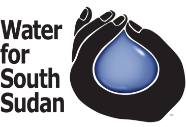Water
A Basic Need. A Human Right.
People are dying from dirty water in remote villages of South Sudan.
South Sudan’s environment is starkly beautiful but harsh. It has just two seasons: one dramatically wet, the other dry with temperatures often rising above 120°F during both seasons. During the rainy season, water is plentiful for villagers, their crops, and their animals. But during the annual six-month dry season, life changes for the worst.
Walking Miles Each Day for Water
The dry season forces millions of South Sudanese each year to leave their village homes in search of water. Some have to abandon their homes and move altogether while others, usually women and children, are forced to trek miles every day to collect water from ponds, marshes, ditches, or hand-dug wells, where the water is often contaminated with disease-causing parasites and bacteria. The results are pain, sickness—even death—especially among infants and children.
Water, however tainted, is needed to live.
Villagers must relocate during the dry season to be near water sources. Only with the arrival of the next wet season can people return to their homes. This annual hunt for water prevents villages from building stable, basic infrastructure such as schools, markets, and medical clinics. Even when villages are able to build clinics or schools, the buildings can remain empty for up to six months year because the dry season forces villagers to find water.
Add water, and life blossoms.
Hope for a better life springs from a well. Children are healthier and can go to school, expanding their dreams and the possibility to fulfill them. Women don’t spend their days trekking long distances for water. Instead, they can spend their time growing food, making more nutritious meals for their families, and participating in the small businesses that pop up at markets. Clinics can be built and sustained when there is a well nearby.








